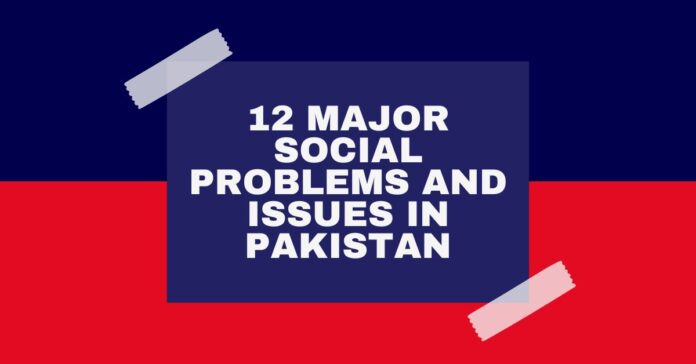
Pakistan is a country that is rich in culture, history, and tradition. However, it is also a country that is plagued with a number of social problems and issues that continue to hinder its growth and development. These issues range from poverty and illiteracy to corruption and political instability. In this article, we will discuss 15 major social problems and issues in Pakistan.
Introduction
Pakistan is a country that has faced a number of challenges since its inception. From political instability and corruption to religious extremism and sectarianism, there are a number of issues that have hindered the country’s growth and development. However, despite these challenges, Pakistan has made significant progress in a number of areas, including education, health, and human development.
Poverty
Poverty is one of the most pressing social issues in Pakistan. According to the World Bank, approximately 24.3% of the population lives below the poverty line. This means that millions of people in Pakistan are unable to afford basic necessities such as food, shelter, and healthcare.
Illiteracy
Illiteracy is another major social problem in Pakistan. According to UNESCO, the literacy rate in Pakistan is only 60%. This means that a large number of people in Pakistan are unable to read or write, which limits their ability to find jobs and improve their lives.
Corruption
Corruption is a pervasive problem in Pakistan that affects every aspect of society, from the government to the private sector. According to Transparency International, Pakistan ranks 124th out of 180 countries on the corruption perceptions index. Corruption in Pakistan is not limited to the government; it also affects the private sector and civil society.
Political Instability
Political instability is another major social problem in Pakistan. The country has a history of coups and political crises, which has led to a lack of continuity and stability in governance. This has had a negative impact on the country’s economy, as foreign investors are hesitant to invest in a country that is politically unstable.
Religious Extremism and Sectarianism
Religious extremism and sectarianism are major social problems in Pakistan. The country has a history of sectarian violence, which has led to the deaths of thousands of people. This violence is often driven by religious differences and has created a climate of fear and insecurity in the country.
Gender Inequality
Gender inequality is a pervasive problem in Pakistan. Women are often denied their basic rights and freedoms, and are subjected to discrimination and violence. According to the United Nations, Pakistan ranks 153rd out of 189 countries on the gender inequality index.
Child Labour
Child labour is a major social problem in Pakistan. According to UNICEF, approximately 12.5 million children between the ages of 5 and 14 are engaged in child labour in Pakistan. These children are often forced to work in hazardous conditions, and are denied their basic rights to education and healthcare.
Environmental Issues
Environmental issues are also a major social problem in Pakistan. The country is facing a number of environmental challenges, including air and water pollution, deforestation, and climate change. These issues are having a negative impact on the health and well-being of the people of Pakistan.
Healthcare
Healthcare is another major social issue in Pakistan. The country has a high infant mortality rate, and many people do not have access to basic healthcare services. This has led to the spread of infectious diseases and has had a negative impact on the overall health of the population.
Sectarianism
Sectarianism is a major social issue in Pakistan. It is a result of religious, cultural, and political differences. Sectarianism has resulted in violence and terrorism in the country. The government needs to promote interfaith harmony and tolerance and eliminate sectarianism from society.
Overpopulation
Overpopulation is a significant social issue in Pakistan. It is the root cause of many other problems, such as poverty, illiteracy, and unemployment. The government needs to promote family planning and birth control measures to control population growth.
Drug Abuse
Drug abuse is a growing problem in Pakistan. The country is located on the major drug trafficking routes between Afghanistan and Iran, and as a result, drug abuse is becoming increasingly common. This is having a negative impact on the health and well-being of the people of Pakistan.
Conclusion
In conclusion, Pakistan faces numerous social problems and issues that continue to impact the country and its people. From poverty and unemployment to corruption and political instability, these issues need to be addressed through collective efforts and effective policies. The government, civil society, and the people of Pakistan must work together to find solutions and create a more just and equitable society. By addressing these challenges and working towards a brighter future, Pakistan can realize its full potential and become a prosperous and peaceful nation.






